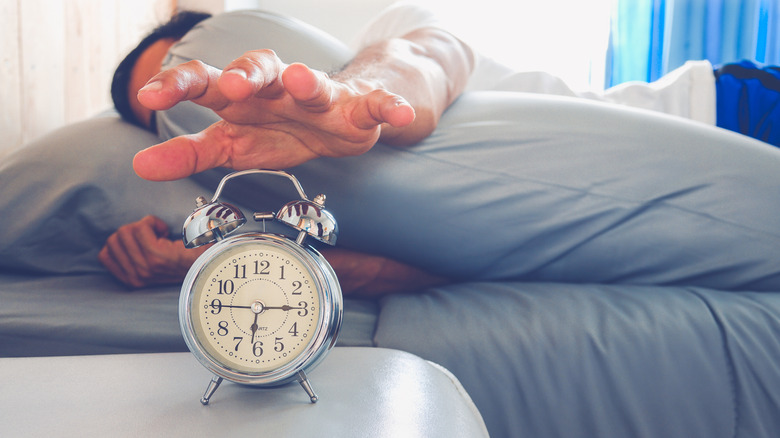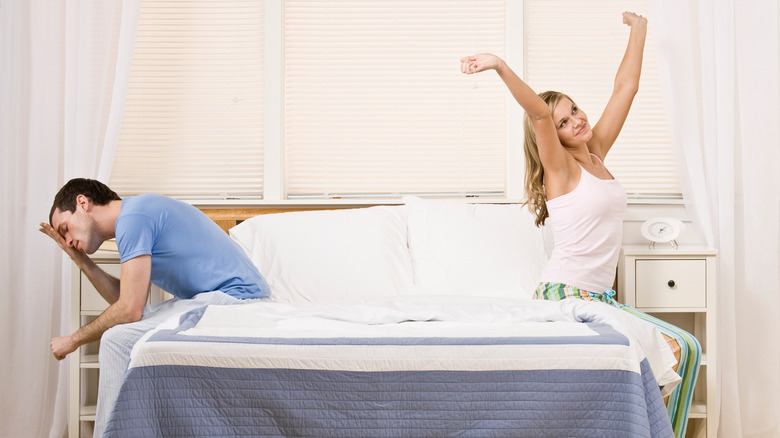You Should Stop Waking Up So Early If This Happens To You
"The early bird gets the worm" seems like a convincing argument to set your alarm clock a few hours earlier, right? While waking up early has its benefits, this lifestyle choice isn't best for everyone. Here's how to tell it's time to shift your morning routine.
The number one sign that you need to stop waking up so early is that you're tired during the day. It's normal to feel a little groggy after waking up, but you should feel awake and ready for the day within an hour of your alarm going off. Adults should aim for seven to nine hours of sleep every night (via Cleveland Clinic).
Sleep often gets put on the back burner when we are planning our busy lives, but getting enough sleep should be a priority. "It's very easy to stay up late and burn the candle at both ends," Michelle Drerup, PsyD, DBSM, told Cleveland Clinic. "However, when you do that, you quickly run into a problem of dealing with sleep deprivation." Sleep deprivation can lead to impaired memory, stress, high blood pressure, diabetes, and even heart failure. If you're not getting at least seven hours of sleep at night, consider setting your alarm for an hour or two later.
Consider how your morning routine affects your partner or spouse
If you live with other people, the time you wake up in the morning may be negatively impacting your relationships. If you get up early in the morning and your partner or spouse doesn't, you might be impacting their sleep habits with yours. This can cause stress and frustration for both of you. If you have a choice, consider waking up later to make your sleep schedule more in sync with your partner's.
However, not everyone can choose the time they wake up in the morning. If your partner prefers to sleep in but you have to be up early for work, consider sleeping in separate rooms occasionally to ensure you both get adequate sleep through the night. "If there's an inconsistency with sleep schedules, you can work out schedules of nights together and nights apart to allow proper rest and recharge," Dr. Benjamin Smarr, National Institutes of Health postdoctoral fellow at UC Berkeley and Reverie sleep advisory board member, told Bustle. Communication with your partner is key to determining a schedule that works for both of you.


